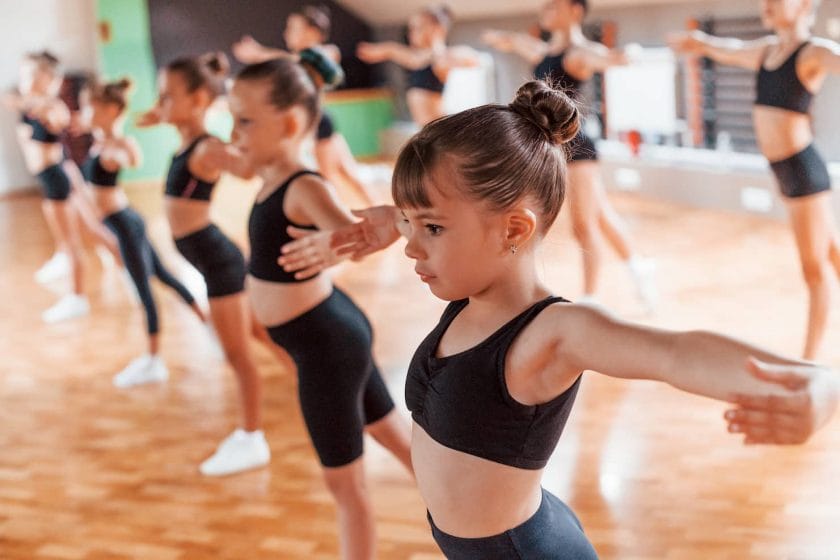These days, homeschooling is becoming popular among families. We see more parents have their kids stay home each year rather than go to school. However, this decision can be a challenging one. Parents may wonder if homeschooling their kids will make them awkward.
Not all homeschooled children are “awkward.” A homeschooled child might have different experiences from the average school-goer, but that is not always bad. Children learn based on what they are taught, their peer group, and their environment. Children need socialization, no matter their education status.
However, there isn’t a lot of research available regarding the awkwardness of a homeschooled kid. Many children grow up to be fine socially, despite being homeschooled. They may differ from publicly educated children, but some parents find their homeschooled kids less likely to display much “problem behavior” because of their controlled environment.

Why Do Homeschoolers Have the Stigma of Being Socially Awkward?
People tend to immediately assume that all homeschooled children are socially awkward if they do not mix well with their peers. Often, a child may seem awkward because peers are uncomfortable speaking to them as they don’t have the same shared experiences. Different does not mean awkward.
School kids are most likely to socialize with children their own age. They have a shared experience of attending public school. However, homeschooled children will socialize with people of different age groups, depending on what their parents expose them to. They have different experiences, making initial small talk (that focuses on shared experiences) more difficult. It doesn’t mean it will stay difficult or awkward; it just means they need time to develop a shared experience.
So, alienating a homeschooled kid from their peers becomes easy because other kids cannot relate to the other kid’s experiences unless the children (and adults) all focus on creating a positive experience.
Are Homeschoolers Less Socialized Than Other Students?
While homeschooled children socialize less with their own age group or with fewer children their own age, they tend to socialize with other people of different ages. Therefore, they socialize more broadly than one who is not homeschooled.
So, sometimes they are more friendly than other kids because of their ability to express themselves more openly to anyone, regardless of age.
It’s more of the stigma attached to them that makes them seem socially awkward. If we talk to a homeschooled child, we’ll be surprised how comfortable these kids are conversing with us.
On the other hand, most publically educated students prefer to be with their peers, feel shyer around adults, or don’t want to socialize with younger children.
Ideally, we’d find some way to balance the two for all students.
Does Home School Affect Social Skills?
Homeschooling can affect how children socialize. Parents control and manage how their children behave by socializing with different people. Teaching children manners and respect in a controlled environment can be easier through homeschooling.
While regular school also teaches these skills, ensuring results is harder because the climate is usually not controlled. Plus, there are 20-plus children in a classroom compared to only a few in a homeschool scenario. So, it affects our kids’ socialization, but this depends on how we teach them to socialize.
It’s always a significant step to teach kids by example. We can talk to them politely to teach them how to speak to others, especially adults. We can also expose them to people we know are a good influence.
In many public schools, students tend to be exposed to bullies or individuals with rude personalities that might rub off on their kids. Unfortunately, we don’t get the opportunity to keep these elements under control when our children are in a public school. We hope that the public school’s policies help prevent that, but the reality is that bullies exist – and even a “perfect” policy can’t prevent every issue.
So, there’s a chance that the child will grow awkward or even rude depending on how they pick up personalities from their environment.
How Do You Socialize When You Are Homeschooled?
Aside from socializing within the family unit, many opportunities exist to help our children socialize. There are homeschool groups, extracurricular activities, clubs, sports, cooperative groups (co-ops), impromptu outings for homeschooled kids, and many more. Be aware of local homeschool groups on social media to find these types of groups.
Our kids have been well-socialized despite being homeschooled. Some days, they complain that they’re being MORE social than they had to be at public school – and they need some introvert time!
Let’s look at some of the options available.
Home school groups
Parents can look at homeschool groups online or in their neighborhood. It’s usually composed of other homeschooled kids of different age groups or even religious groups.
They host several activities, outreaches, play dates, and sometimes even classroom sessions for homeschooled kids so they can socialize with other homeschooled children.
Ask about homeschool groups around your neighborhood and on social media. That’s how we found some of our groups. Our favorite groups ended up being ones we attend with friends and neighbors who also homeschool. If a group doesn’t exist in your area already, think about starting one. Then you can set the guidelines, times, and whatever else.
If we need help, we can check a2zhomeschooling.com, as it offers a list of several homeschool groups. Many of these groups are religion specific, so it’s best to search for something that fits our homeschool style and beliefs. Some groups are more strict than others about letting people of other faiths attend their homeschool groups.
Personally, we find that attending a group that’s not based on our religious affiliation is our preference; we want our children to understand and appreciate diversity and tolerance coupled with our religious beliefs. Learning about other religions and the beliefs of others has helped us do just that, while proving to be a positive experience overall.
Public school extracurriculars
Some public schools may allow children to enter some of their extracurricular activities. Some clubs, especially those related to sports, may allow them to join despite not being a student in their school.
It’s always best to check around the public schools to see if they offer this opportunity to homeschooled kids. Even if they don’t, neighborhoods usually offer a variety of activities for homeschooled children.
In addition, read this informative article we wrote for you: Can Homeschoolers Play Sports for Public Schools?
If your public school doesn’t allow homeschooled children to participate in extracurriculars, don’t stress. Most local rec centers offer some pretty cool extracurricular options beyond sports. Our city has a pretty cool science camp they offer periodically.
Classes and clubs
There are also classes and clubs outside of school, so it’s good to keep an eye out for them. For example, sports classes such as ballet or martial arts are usually open in local gyms. Libraries also offer book reading clubs, a great way to introduce children to reading. We love the summer reading camps at our library!
Museums also offer group tours, so kids can join these activities as a learning and socializing date. There is no limit when it comes to getting a homeschooled child to socialize.
If we’re looking for budget-friendly options, we can always have them socialize at a local park where our kids can go around making friends on their own, and we can set up another play date with their parents on another occasion.
Parents can also go to a church and sign their kids up for the choir to involve their children in community-building activities.

How to Foster Independence in a Homeschool Child
The best way to foster independence in a homeschooled child is to offer them a chance to perform independently and learn from successes and failures in a safe environment. Giving them simple tasks such as assigning them chores, leaving them to study independently, and allowing them to explore their creativity with minimal instructions are all great ways to foster independence in a child.
Another misconception about homeschooled kids is that they are too dependent on the adults around them. That’s entirely up to the parents. It might happen the way people expect, or we can foster independence in our homeschooled children as they grow.
It doesn’t have to be too big of a task. Younger kids can be asked to pick up their toys and return them to the toy box, which is already counted as a chore and a step towards independence.
Providing a safe environment is important; children need to be able to learn from both successes and failures to be independent.
Homeschool All-Stars
Our kids hate making mistakes, but we’ve adapted the mantra from Ms. Frizzle:
Take chances! Make mistakes! Get messy!
Ms. Frizzle, “The Magic School Bus” TV series
When I attended a Love and Logic parenting seminar, one thought stuck out: we can provide a safe environment to learn from failures now, or we can let our children learn from failures as adults – in an environment that’s nowhere near as safe. So let your children learn from mistakes and failures now – and give them the love and encouragement they need in a safe environment so that they can skip those hurtful mistakes as an adult.
Next Steps
We hope everyone has received the answers to any questions from this article. Once kids are used to doing things themselves, they’ll also learn how to apply those to the outside world.
For more about homeschooling, read these articles below next. They’re all great, so pick the one (or ones) that appeal most to your family’s needs.
- Can I Homeschool My Child Temporarily?
- Can Homeschoolers Play Sports for Public Schools?
- Cost of Homeschooling vs Public School Compared (2022 Update)
- Guide to Homeschooling Large Family Style
- How Do I Take My Child out of School to Homeschool?
Resources
Learning from your own experience is important, but learning from others is also smart. These are the sources used in this article and our research to be more informed as homeschoolers.
- Abeka. (n.d.). Abeka. https://www.abeka.com/blog/how-to-encourage-independence-in-homeschool-learning/
- Coalition for Responsible Home Education. (2021, March 23). How Can I Socialize My Homeschooled Child? https://responsiblehomeschooling.org/guides/resources-for-homeschool-parents/socialization/how-can-i-socialize-my-homeschooled-child/
- Gustafson, K. (2020, February 10). Are Homeschoolers Unsocialized? Rumors Versus Realities. Sparketh. https://sparketh.com/homeschool-socialization/
- Medlin, G. (2006). Homeschooled Children’s Social Skills. Home School Researcher, 1–8. https://files.eric.ed.gov/fulltext/ED573486.pdf
